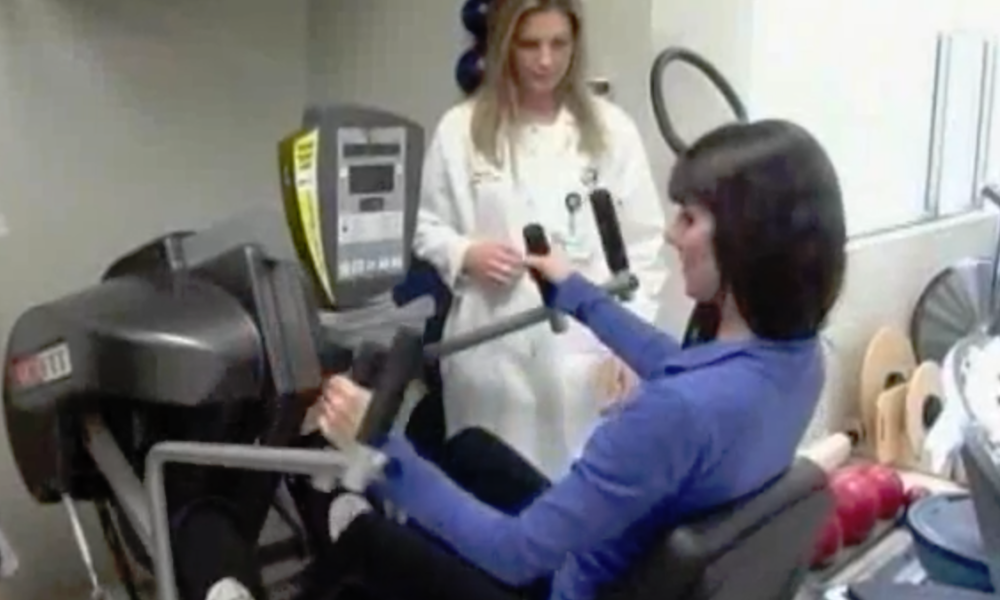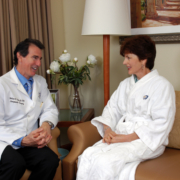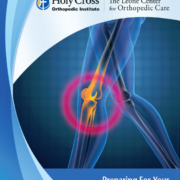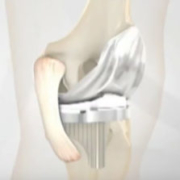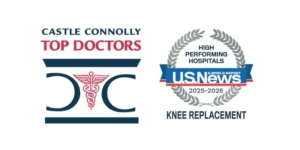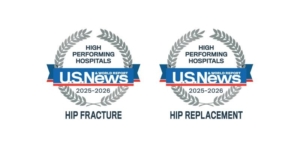Postoperative Care
After your first meeting with Dr. Leone and scheduling your surgery you will be given exercises to condition your body. These are found in our hip and knee booklets: click here , which you can also download. These exercises are designed to strengthen and condition your muscles and improve your breathing. Many of these are the same exercises you’ll be encouraged to do after surgery. We have learned that if your body is conditioned to do these exercises before surgery, they are easier to perform after surgery. We’ve learned that by strengthening and conditioning your muscles and improving your breathing pre-operatively, that your post-operative recovery tends to be faster and easier. If a particular exercise aggravates your underlying condition or causes pain, do not do it. Pain is your body “talking” to yourself. We encourage gentle persistence and discourage pain.
You will also be given instructions on optimizing your nutrition prior to surgery to promote healing, to minimize the potential need for a blood transfusion and to prevent an infection. You will also be asked to take Iron and Vitamin C. Specific recommendation can be reviewed in our hip booklets you will be given and which you can download.
Post Anesthesia Care Unit (PACU): After your surgery you will awaken in our PACU. Your nurse will monitor your vital signs, give your IV fluid and other medicine and make sure you are stable and comfortable. An ice bag is also place against your surgical dressing which helps decrease swelling, bleeding and pain. You will then be transferred to our specialty orthopedic unit on the 4th floor where any family and/or friends may join you.
Pain management post-operatively
One of the major reasons why our patients recover so much faster and return to full activities so much sooner than even several years ago, is our comprehensive approach to preventing and preempting pain…Our goal is to “stay ahead of the pain curve”. This begins in the pre-operative holding area prior to your surgery ever starting.
At the Leone Center, we employ a multi-modal approach that includes everything from medicines given to prevent and down modulate any pain response and preempt potential post-operative complications such as nausea or vomiting, before your surgery starts. Our protocol also includes the type of anesthesia you will be administered, injecting the tissues around the surgical reconstruction with a cocktail of different meds prior to incision closure, and then giving you different medicines from different families of medicines, other than just narcotics, given on a specific schedule once your surgery is complete.
We make arrangements for your medications, including pain medication, to be filled and given to you at the time of discharge. Many patients express their thanks because they do not have to worry about getting prescriptions filled after leaving the hospital and they feel more confident having the pain medication on hand, even if they don’t have to use it.
Medications administered the morning prior to or during surgery include:
- Tylenol to lower your sensitivity to pain as well as decrease the amount of pain.
- Neurontin which also helps to decrease postoperative pain by affecting chemicals and nerves in your body that are involved in pain pathways.
- Medicines which decrease anxiety and make you drowsy.
- A long-acting narcotic to dull pain receptors before pain sets in, as well as medication to prevent nausea following surgery.
- An IV steroid just prior to the start of your surgery and postoperatively.
- After implanting the components, the tissues around the new joint are injected with a “cocktail” including a long-acting local anesthetic, morphine and an NSAID. This combination has greatly reduced post-operative pain and the need for narcotics. This has resulted in our patients feeling remarkably comfortable immediately after their surgery and allowing you to routinely get out of bed the day of surgery and walk.
- Tranexamic acid is also given just prior to making the incision and postoperatively. This medication decreases intra- and post-operative blood loss by stabilizing the blood clot which has curtailed greatly the need of for post-operative blood transfusion.
- IV antibiotics are also administered before and after surgery to lower the risk of infection.
Medicines prescribed for Going Home
You will be given very specific instructions regarding what medicines to take and when to take them once home. Once again, our strategy is to prevent pain and common post-op problems like constipation. Often, a combination narcotic / Tylenol medicine is prescribed and will be filled by a local pharmacy before you leave Holy Cross Hospital, so you will have just what you need when you do get home.. The discharge plan will have been carefully reviewed and arrangements made for any supplies such as walkers or elevated toilet seats to be delivered to your home.
If you will be going to another facility after admission to Holy Cross Hospital
If you are to be discharged to another facility prior to going home, the discharge plan will be carefully reviewed with you and instructions given to the rehabilitation facility that you will be going and will include any medicines you are taking, your physical therapy protocol and when to come back to our office.
For more information about recovery after surgery go to our video library and watch the video “Recovery following Hip or Knee Surgery.”

